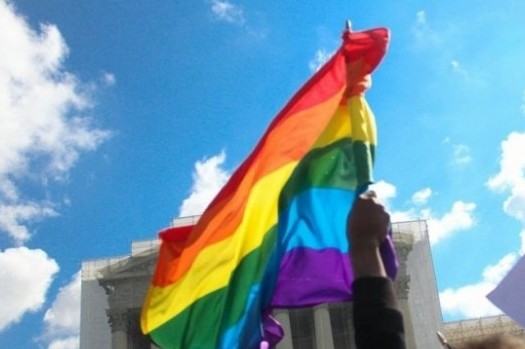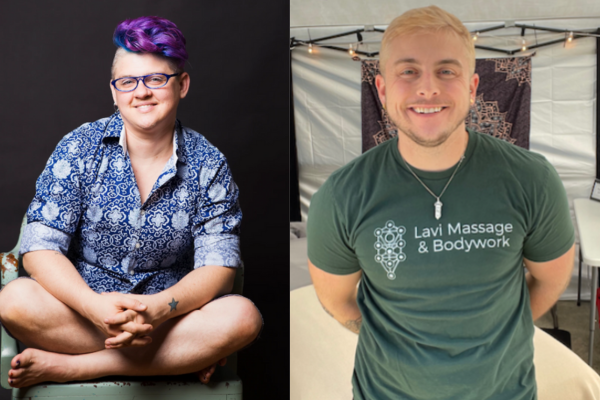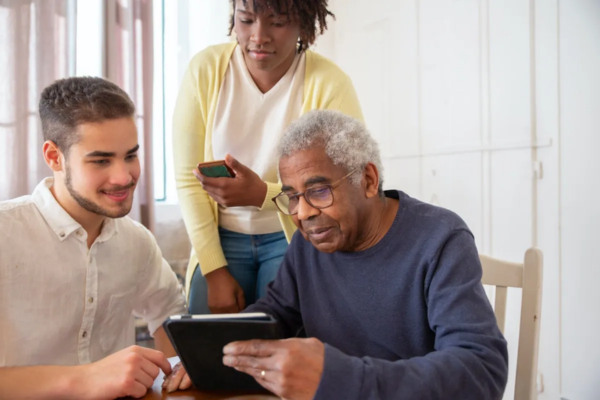
From Facebook to Friendship: A Look at “Face 2 Face”
June 24, 2013
DOMA Struck Down by the Supreme Court
June 26, 2013Educating our community and breaking down barriers
By May Sifuentes

“Educación es poder, mi nana,” my grandmother would always tell me back when we lived together in Mexico. For a woman who barely finished the fifth grade, her wisdom was always beyond any schooling anyone could have gotten. Now more than ever, I see the power of her words—education is indeed power, and it has the potential to change lives for the better. As a member of many different communities—I am an LGBT Latina immigrant who is passionate about health care and access. I see how education, specifically sex education and health, play a powerful role in changing lives.
Latinas, and many women of color, have incredible disadvantages and barriers when it comes to sexual and reproductive health. Latinas are more likely than any other racial/ethnic group to be uninsured, more likely to live in poverty, more likely to be diagnosed with cervical cancer—a disease that can be reversed if treated at the right time. The rates of HIV infection are high in our community. If you take a look at LGBT Latinas, well, these disparities just expand. In addition to the disparities mentioned above, LGBT folks experience a specific form of social discrimination that can have negative impacts on our mental health, as well as emotional and physical health. LGBT youth are less likely to get the sexual education information that applies to them, and according to the Center for Disease Control and Prevention, men who have sex with men accounted for 63% of the estimated new HIV infections in 2010.
It is vital, however, that we understand that many of the specific disadvantages in the paragraph above can be dismantled and change can happen for the better. The first step for the LGBT community to be a healthy community—for ourselves as individuals to be healthier—is to identify the barriers we want to knock down. It is equally important to help our community realize the power we have and the change agents we can be in this movement. Like Cesar Chavez once said, “Once social change begins, it cannot be reversed. You cannot un-educate the person who has learned to read.”
Educating ourselves on our issues and resources, and sharing that information with those around us, is an extremely important step in our process. We need to dispel the myths that LGBT people can’t get breast cancer, get pregnant, get cervical cancer or sexually transmitted infections, and make sure we get accurate sexual health information in our circles. For some of us, it’s also important to understand that we will need services—like pap smears and breast health care—that are not traditionally connected to the gender we identify with.
Historically, we as a community have faced high rates of discrimination from medical providers across the nation; this is why it is important to know which spaces will treat us with respect in a non-judgmental way, and give us the quality health care that we need. If you haven’t had a physical exam in years, it’s time to make a move.
I work with Planned Parenthood because I wanted to be part of a movement that has done so much for my many communities. Many of my LGBT friends tell me that Planned Parenthood was able to give them accurate sexual health education and services when they needed them the most—and because of that, they are able to live healthy lives now. But Planned Parenthood clinics are only some of many health care providers in our communities that are dedicated to your health, no matter who you are. Education is power; I firmly believe that we are able to make the best decisions possible for ourselves when we have as much information as possible. It’s important that we in the LGBT community take care of ourselves—and in the process, make our abuelitas proud.
Learn More About Sexual & Reproductive Health:
- Planned Parenthood: http://www.plannedparenthood.org/
- Planned Parenthood en español: http://www.plannedparenthood.org/esp/
- Whitman-Walker Health:
http://www.whitman-walker.org/ - La Clinica Del Pueblo: http://www.lcdp.org/





